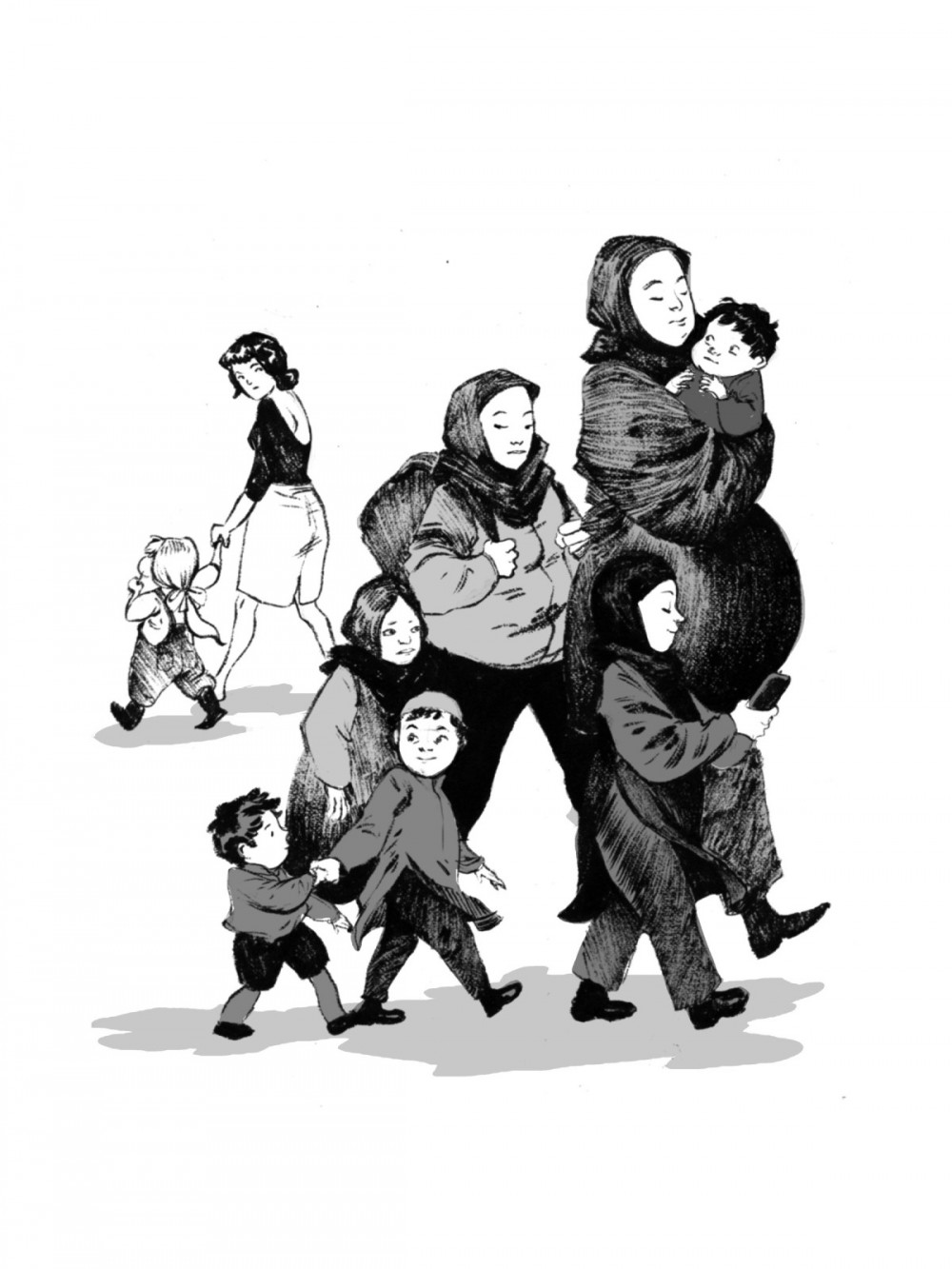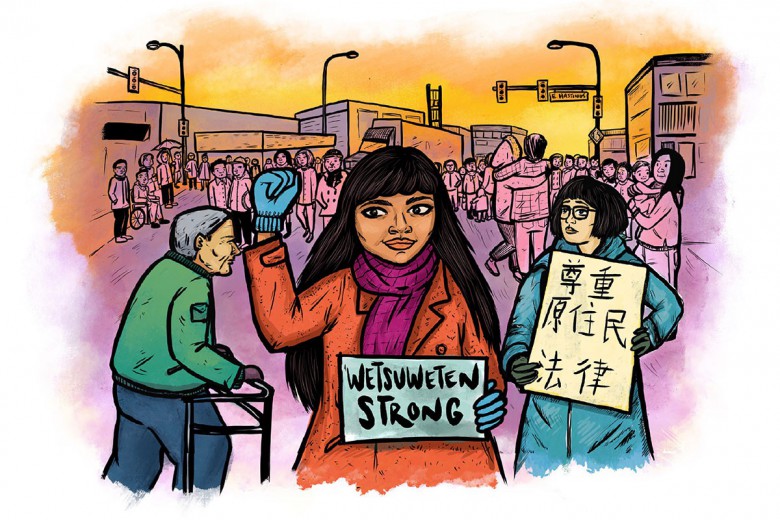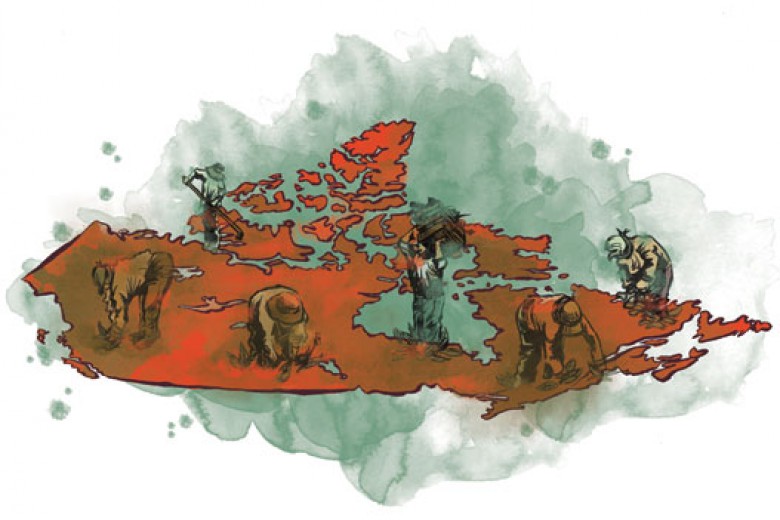
On May 10, Dutch parliamentarian and ultra-nationalist Geert Wilders spoke to a private reception at the National Arts Centre in Ottawa where he warned of the imminent collapse of liberal democracy in Canada. “Don’t be fooled,” he cautioned Canadian audiences, “Don’t think that what is happening in Europe today won’t happen in Canada.”
It was the third and final stop of a Canadian speaking tour on the looming “Islamization” of the West (alternatively termed “demographic jihad” by one of his Canadian hosts), in which Wilders implored Canadians to impose radical measures to curb Muslim population growth: a moratorium on immigration from Arab countries, halting the construction of mosques, and shuttering Islamic schools permanently. For those already within Canada’s borders, he offered the following words: “behave, assimilate, or we will send you packing.”
While a host of commentators across the political spectrum were quick to dismiss Wilders’ racist vitriol – for which he is currently being prosecuted under hate speech legislation in the Netherlands – his entreaties received a welcome reception among growing numbers convinced of the impending dangers presented by Muslim population growth.
SUN TV host Ezra Levant told viewers in a prime-time interview with Wilders (whom he has referred to as “the bravest man in Europe”) that “the challenges radical Islam poses in Holland today are challenges we will face tomorrow.”
As Sumayya Kassamali writes in this issue, in a political climate that relies on the conflation of the Muslim, the immigrant/outsider and the terrorist to justify foreign interventions, paranoid fantasies over the alleged threat posed by a growing Muslim population are gaining currency.
Such fears betray the limits of multicultural “tolerance,” and the resilience of a Canadian national identity still firmly anchored in its European settler heritage.
Wilders thus articulates the guiding principle that informs attitudes toward those deemed outside our national imagination, both migrant and citizen alike: “Canada should remain Canada.”
While projections of unchecked Muslim proliferation are uniformly dismissed by serious demographers, Wilders is perhaps right in saying that developments in Holland are a harbinger for what is to come in North America.
In 2004, Wilders headed a fringe one-man party. His Party for Freedom now has 24 seats in parliament, making it the third-largest political party in the Netherlands. Wilders’ ascendancy speaks to a broader trend across Western Europe, where far-right, ultra-nationalist parties ranging from the Swiss People’s Party to the National Front in France have gained unprecedented electoral success on law-and-order, anti-immigration platforms that call to mind the Conservative campaigns that have now won three straight elections in Canada.
As Fathima Cader describes in “Tamil, Tiger, Terrorist?,” anti-migrant hysteria has been readily stoked by a Conservative government bent on criminalizing and expelling asylum seekers in Canada.
While the Conservative government continues to fortify our borders and tighten restrictions on immigration, our culpability in the unprecedented levels of migration worldwide has never been clearer. From Canadian mining companies in Latin America to the occupation of Afghanistan, our overseas adventures continue to violently dispossess people around the globe.
As Michael Skinner reports in this issue, more than 730,000 Afghans have been internally displaced by warfare since 2006 – an average of 400 people every day.
In Libya, where Canadian fighter jets have flown over 360 sorties and dropped at least 274 laser-guided bombs in the first two and a half months of the NATO-led assault, the number of refugees who have fled violence into neighbouring states is now approaching one million.
At the same time, Canada continues to stand alone on the world stage as the most loyal protector of Israel, whose colonization of Palestine accounts for fully one third of the world’s refugees.
As Alan Sears and James Cairns discuss in this issue’s analysis of the recent elections, the fact that these and other critical issues of Conservative policy remain outside the purview of political debate is indicative of the work that lays before us on the left.
As borders are increasingly sanctified and defended against human migration, the need to transgress them has gained new potency. Just as militaries and capital cross borders with ever-greater abandon, so too must our resistance and solidarity.



_780_520_90_s_c1.jpg)


